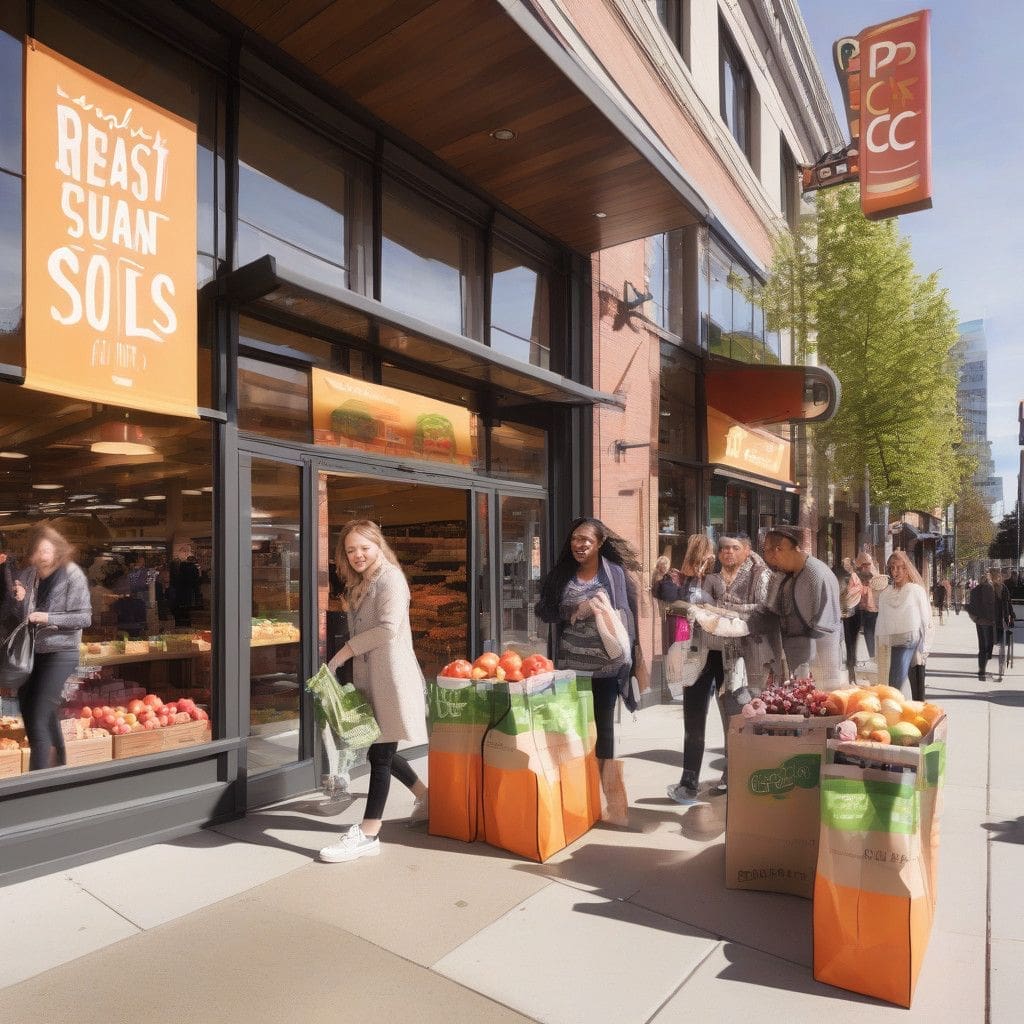In a notable shift for the grocery landscape in Seattle, PCC Community Markets is set to make a return to downtown with a revised approach. Nearly two years after the closure of its previous store, PCC has announced plans to open a smaller-format market that will occupy part of the original store’s location. This change reflects both an adaptation to consumer behavior and a strategic alignment with the co-op’s long-term goals.
The new PCC market will span approximately 6,000 square feet, focusing on the necessities for urban residents and workers. The layout is designed for convenience, featuring a selection of meals, snacks, and grocery items optimized for on-the-go consumption. Customers will discover options for quick and easy meals, essential groceries, and household items that suit the busy lifestyles typical of urban settings.
In a strategic move, PCC will utilize the remainder of the space for its main offices, as its lease for the current headquarters is set to expire in 2025. This consolidation not only maximizes space efficiency but also reduces administrative overhead—a critical factor for encouraging sustainability within the organization. President and CEO Krish Srinivasan expressed that the new store concept arises from valuable insights gained during the operation of the earlier market that opened in January 2022 and closed in January 2024 due, in part, to lower foot traffic as the city recovered from the pandemic.
Srinivasan acknowledged the strong demand for the unique shopping experience that PCC offers, saying, “We continue to hear from our members, staff, and downtown residents about a strong need in the city center for the kind of unique shopping and dining experience that only PCC offers.” The emphasis on a community-oriented approach resonates with PCC’s foundational ethos as a cooperative grocer, aiming to balance economic viability with a commitment to social and environmental values.
The cooperation with city officials and landlords has played a pivotal role in facilitating this transition. Srinivasan highlighted the collaborative efforts with the Wright Runstad property group, commending them for helping create a solution that benefits both parties. Furthermore, appreciation was directed towards Seattle’s civic leaders who have supported the co-op’s commitment to maintaining a presence in downtown Seattle.
During the second quarter of 2024, PCC reported solid results, indicating a positive trajectory with sales exceeding expectations. Such financial resilience is crucial as the co-op positions itself for long-term growth while navigating the complexities of retail in a post-pandemic environment. With 15 existing stores in the Puget Sound area, including various neighborhoods across Seattle, PCC remains a significant player in the local grocery market.
Moreover, PCC has garnered recognition for its sustainability efforts, being named one of Progressive Grocer’s 10 Most Sustainable Grocers for 2024. This accolade underscores the brand’s commitment to environmentally conscious practices, which is increasingly a deciding factor for consumers when choosing where to shop. The emphasis on sustainability is not just a marketing strategy; it is intrinsic to the cooperative’s mission—aligning business decisions with the principles of people, planet, and profit.
PCC’s return to downtown Seattle is more than just an operational adjustment; it is a testament to the resilience of community-focused retail. By creating a smaller, more efficient store format that meets local needs while maintaining a commitment to sustainability and community support, PCC is positioning itself to thrive in an evolving marketplace.
For shoppers, the reopening promises not only a more accessible grocery option but also the chance to engage with a co-op that prioritizes community, quality, and environmental consciousness. As cities continue to recover and redefine their retail landscapes, PCC Community Markets stands as a model for blending traditional grocery values with modern consumer expectations.
PCC Community Markets’ renewed presence in Seattle illustrates how adapting to changing consumer behaviors and leveraging community support can lead to sustainable growth in the retail sector. As urban areas evolve, the importance of flexibility and attentiveness to local needs in grocery retail cannot be overstated.
